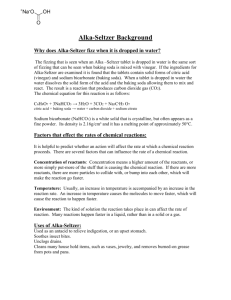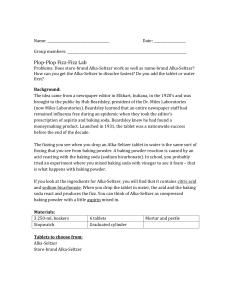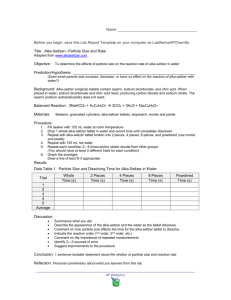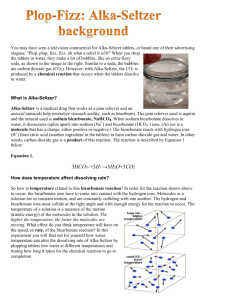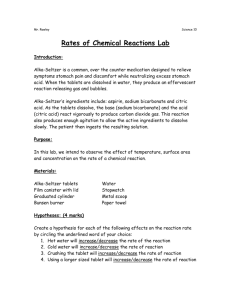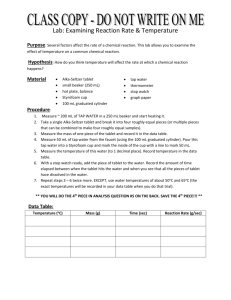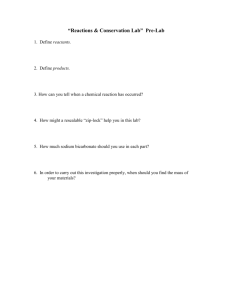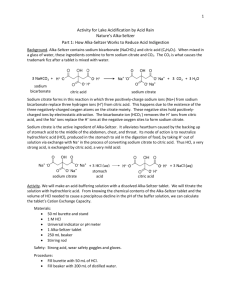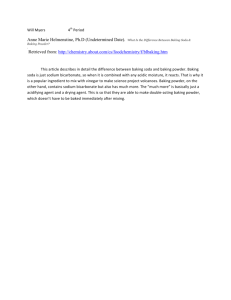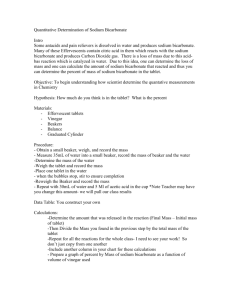The Alka-Seltzer Fizz
advertisement
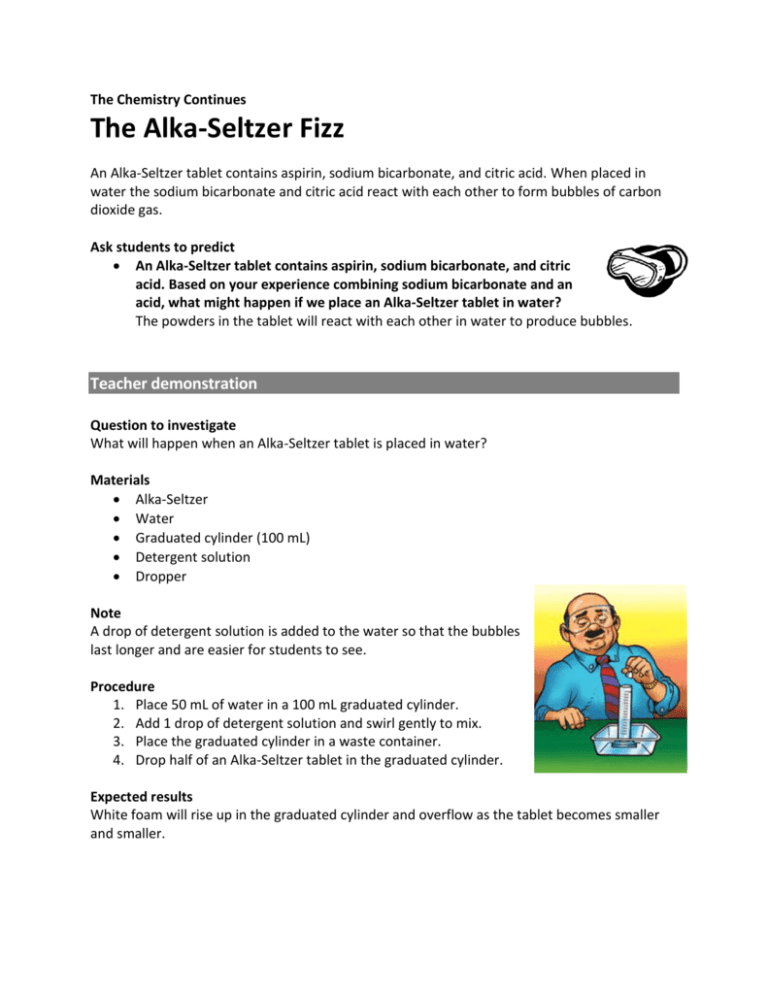
The Chemistry Continues The Alka-Seltzer Fizz An Alka-Seltzer tablet contains aspirin, sodium bicarbonate, and citric acid. When placed in water the sodium bicarbonate and citric acid react with each other to form bubbles of carbon dioxide gas. Ask students to predict An Alka-Seltzer tablet contains aspirin, sodium bicarbonate, and citric acid. Based on your experience combining sodium bicarbonate and an acid, what might happen if we place an Alka-Seltzer tablet in water? The powders in the tablet will react with each other in water to produce bubbles. Teacher demonstration Question to investigate What will happen when an Alka-Seltzer tablet is placed in water? Materials Alka-Seltzer Water Graduated cylinder (100 mL) Detergent solution Dropper Note A drop of detergent solution is added to the water so that the bubbles last longer and are easier for students to see. Procedure 1. Place 50 mL of water in a 100 mL graduated cylinder. 2. Add 1 drop of detergent solution and swirl gently to mix. 3. Place the graduated cylinder in a waste container. 4. Drop half of an Alka-Seltzer tablet in the graduated cylinder. Expected results White foam will rise up in the graduated cylinder and overflow as the tablet becomes smaller and smaller. Ask students Do you think this is a chemical reaction? Why? Yes, this is a chemical reaction because a gas was produced. This gas was not in one of the reactants, so it must have been produced during the chemical reaction. Why do you think this reaction is similar to the reaction of vinegar and baking soda? Citric acid and vinegar are both acids and interact with sodium bicarbonate in a similar way to produce carbon dioxide gas. Think about it Baking soda in water does not bubble but baking powder in water does bubble. Baking powder contains baking soda and something else that makes it bubble. What do you think that something else might be? Chemistry explanation Alka-Seltzer tablets and baking powder both contain sodium bicarbonate and a powdered acid. Alka-Seltzer tablets contain two acids, aspirin and citric acid. Baking powder may contain an acid like cream of tartar, calcium acid phosphate, or some other acid. When either of these products is placed in water, the acid and sodium bicarbonate react to produce carbon dioxide gas.
